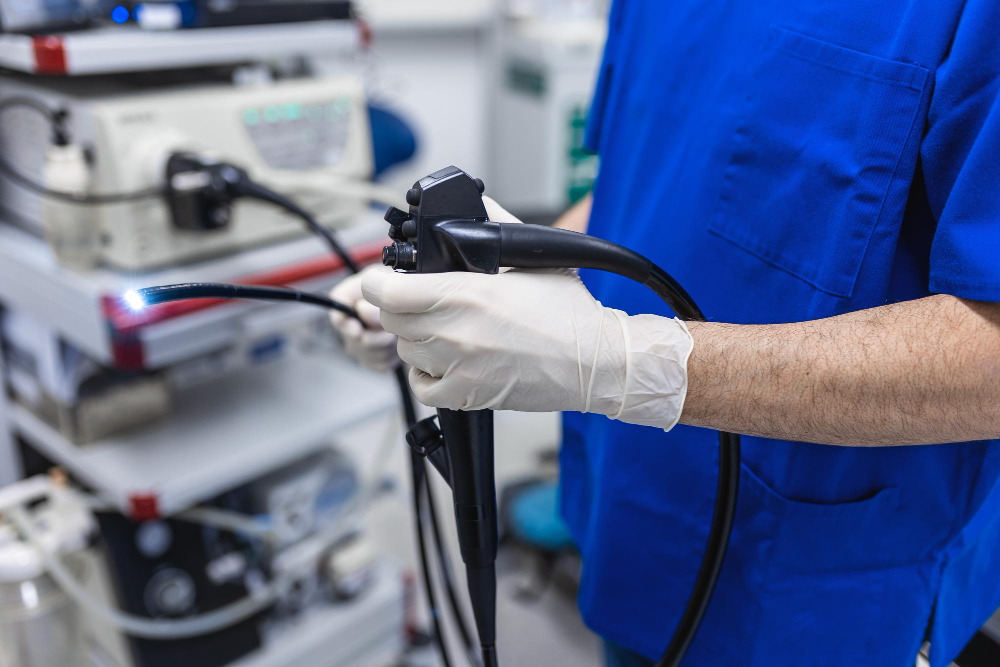At GI Alliance, our staff is pleased to provide you with care with cutting-edge methods. These tools help our physicians render the latest care, more speedy appointments, and more accurate outcomes in contrast to more conventional approaches.
By offering liver elastography (FibroScan) to our patients, our providers can observe their liver health and detect and monitor a number of liver conditions. To get more details regarding the ways FibroScan can help you address your liver function, contact your nearest GI Alliance location to request a consultation today.
What should I know about FibroScan?
As a special liver test, FibroScan involves ultrasound waves to deliver a complete view of your liver function, evaluate the development of liver problems, and work to uncover liver issues. When you have this brief test, you’ll be asked to position yourself flat and put your right hand below your head. Your technician will run a handheld device, much like the devices involved in ultrasound procedures, over the abdomen. When we perform this exam, we can:
- Diagnose conditions of the liver
- Measure the stiffness of the liver to indicate liver scarring
- Identify scar tissue in the liver
- Check liver wellness following a liver transplant
- Assess the development of liver conditions
With most cases, FibroScan might be utilized rather than getting a more involved liver biopsy. Many of our patients choose this technique considering that there is no requirement to take more time away from everyday life or seek out someone to take them home following the test, and it is virtually painless. While this test may not always remove the requirement for a biopsy procedure, it permits your physician to acquire immediate results with more accuracy.
How is FibroScan performed?
When you have your FibroScan procedure at GI Alliance, the FibroScan device will send sound frequencies through your liver. The probe will examine roughly three cubic centimeters within the liver – about 100 times the quantity of a biopsy test. Whenever the sound pulses are delivered, they will require more time to travel through a normally functioning liver. Alternatively, the acoustic waves will bounce through a damaged liver pretty fast, and possibly faster in a more diseased liver.
The FibroScan procedure can additionally point to the quantity of liver fat by monitoring the ultrasound attenuation rate. Whenever the acoustic frequencies are released, they are received into damaged livers more than healthier livers. The fatty liver has a higher attenuation rate, but the healthier liver will have a lower rate of attenuation.
All of this info will be recorded with our advanced technology, which lets your gastroenterologist discuss your results with you in real time.
Why would I require a FibroScan test?
When you experience symptoms or signs of liver conditions, like abdominal pain, dark-colored urine, yellowing of the skin or eyes, or a different problem, your digestive health specialist may suggest a FibroScan to diagnose your liver wellness.
Based on your problems, medical history, and additional considerations, our team might utilize FibroScan to assess or help the verification of:
- Nonalcoholic steatohepatitis (NASH)
- Alcoholic liver disease
- NAFLD (nonalcoholic fatty liver disease)
- Hepatitis B or C
- Excess iron
Learn more about FibroScan
If you find that you or a member of your family experiences symptoms and signs of a liver issue, have previously had liver disease, or have a family history of liver problems, your GI provider may suggest a FibroScan exam. This quick and efficient method can work to observe liver disease and assess the total well-being of the liver, providing a more accurate way to treat and assess liver issues.
To find out more about FibroScan and how it could help you preserve your liver and total health, connect with GI Alliance now to arrange an appointment.


